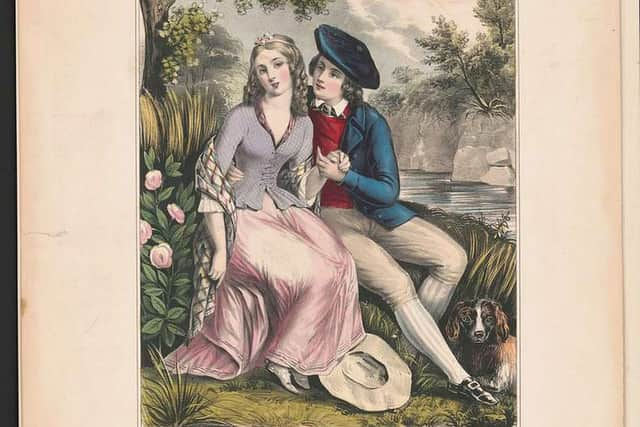Burns Night 2022: Robert Burns brought 'Highlanders back into the mainstream' following battle of Culloden
Documentary Sar Sgeoil – Robert Burns, which will be broadcast on Burns Night tonight, looks at how the bard “daringly bridged the chasm” between the Lowlands and Highlands with works produced following two tours of the north in the late 1780s.
Burns, whose interest in the Highlands may also have been piqued by his love for Mary Campbell, or Highland Mary, a Gaelic-speaker from Dunoon – as well as his own mission to be recognised as the national bard – helped to lionise the Highlands through verse and song at a time when Lowlanders commonly viewed the north as a hotbed of danger, savagery and treason.
Advertisement
Hide AdAdvertisement
Hide AdProfessor Gerard Carruthers, Burns expert and the Francis Hutcheson chair of Scottish literature, said Highlanders faced hostility from both the Lowlander and those who supported the Union during the mid 18th century, with the image of the thin, starving Highland figure becoming a symbol of Scotland itself.


Prof Carruthers said: “Burns’s selection and recreation of Scottish highland and Jacobite song is a crucial moment in the racial history of Scotland.
"We have the low moment with the Jacobite rebellion of 1745 where the Highlander becomes particularly despised and feared. Several decades later, we have Robert Burns bringing the Highlander back into the mainstream as a figure to be loved and embraced.”
My Heart’s in the Highlands, Highland Laddie, The Highland Widow’s Lament, and Will You go to the Indies, My Mary were all songs inspired by the poet’s Highland tours, while The Author’s Ernest Cry And Prayer and the bitterly satirical Address of Beelzebub were poems with their roots in these journeys.
Burns embarked on his two tours of the Highlands in 1787, with the poet venturing with his horse Jenny Geddes to locations including Arrochar, Inveraray, Loch Ness, Culloden, Killiecrankie and Ossian’s grave in the Sma’ Glen near Crieff.
The influence of celebrated fiddler Niel Gow, who Burns visited at home in Dunkeld, is also touched upon in the documentary.
Prof Carruthers said Burns first headed north in the “first flush” of poetic success, with the bard wanting a “jolly”.
He said: “Although he has a good time with friends, eating, drinking and travelling on the tour, he is also conscious of imbibing the landscape, collecting songs, learning more about the fiddle, the history. He is very conscious to seek out certain Jacobite loyal individuals to hear more stories.
Advertisement
Hide AdAdvertisement
Hide Ad"The Highlands are absolutely crucial in that mission to become a national writer.”
Burns forefathers from the north-east of Scotland were reportedly Jacobite sympathisers, with his grandfather supporting the 1715 rebellion, according to accounts.
Culloden was within the living memory of Burns's lifetime, with the bard writing of Bonnie Price Charlie, who was then still alive, not as an old, impoverished outcast, but of a young, able man.
Historian Ruairidh MacIver said: “Without a doubt, Burns had an impact on the perception of the Highlands during the 18th and 19th centuries – and probably to this day.”
Sar Sgeoil – Robert Burns will broadcast on BBC ALBA tonight at 9pm.
A message from the Editor:Thank you for reading this article. We're more reliant on your support than ever as the shift in consumer habits brought about by Coronavirus impacts our advertisers.
If you haven't already, please consider supporting our trusted, fact-checked journalism by taking out a digital subscription.
Comments
Want to join the conversation? Please or to comment on this article.
